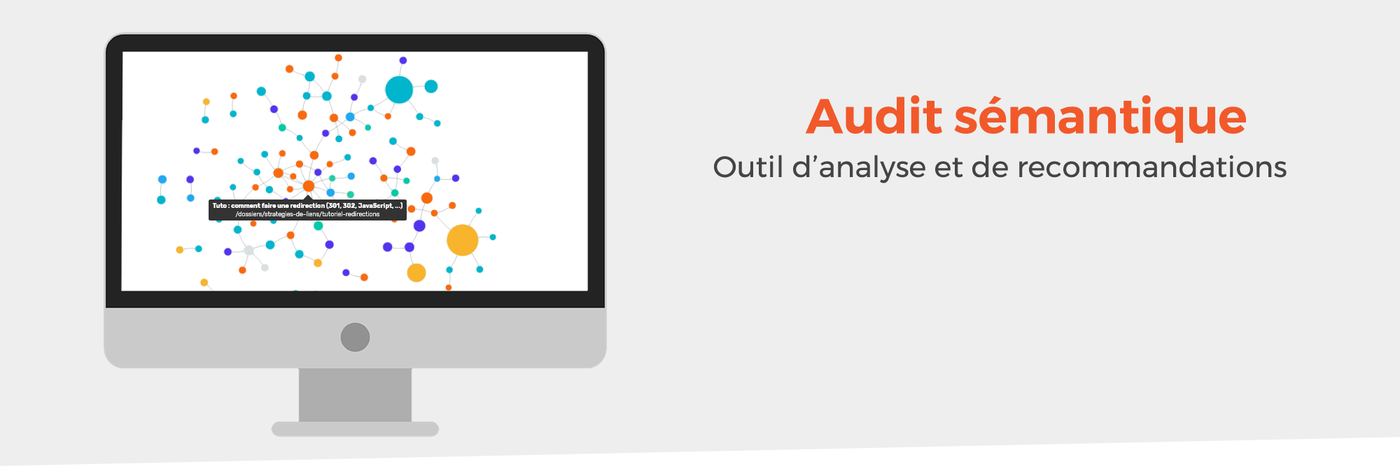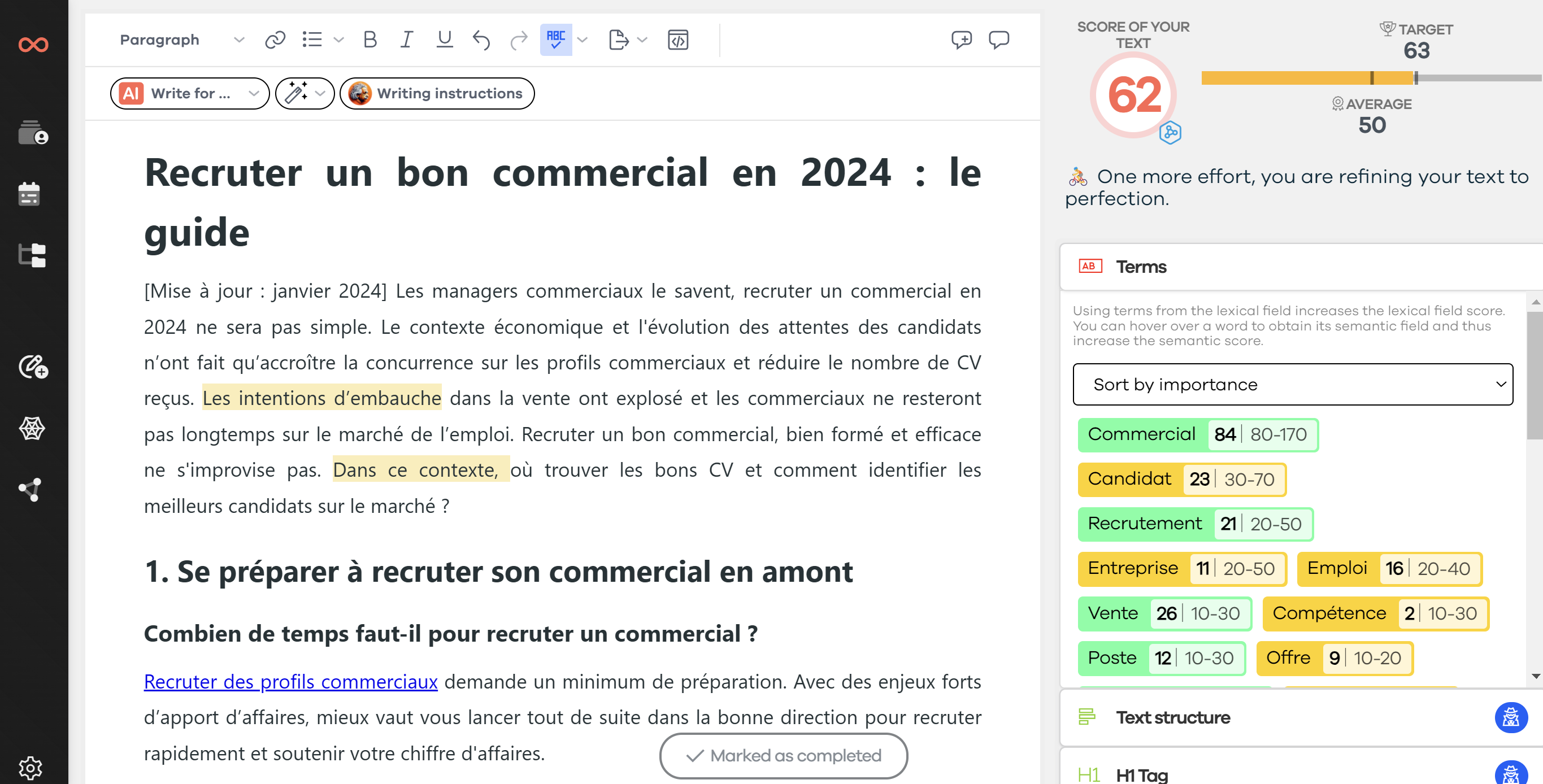🔨 Semantic Crawler: Audit the semantics and internal linking of your website in just a few minutes
Discover and apply formidable SEO recommendations that will advance your site (or your client's)
My goal is to introduce you to my approach to semantic auditing through a tool we have developed for the SEO community (especially in response to your requests). This is the second goal you wanted to achieve (for 44% of you) right after creating and optimizing SEO content.
When you want to optimize a website, you don't know where to start? Are you lacking information about the site's semantics? Do you feel like you've forgotten some essential points during the audit? Do you want to use an innovative approach to SEO?
Save time on your audits and recommendations with the semantic crawler tool.
⚗️ What does SEOQuantum's semantic crawler bring that's innovative?
At SEOQuantum, I like to push the boundaries of what's possible to offer SEO tools that can give you a head start on your competitors. Below I present one aspect of the new SEO tool.
A particularly powerful technique in natural referencing is the use of links in content. This is about contextualized links.
SEOQuantum's crawler allows the detection of links based on their positions on the page, whether they are navigation links (ul/li), in the footer, or content links.
Thanks to this approach, it is easier to mimic the operation of Google. Google attaches particular importance to content links. Indeed, these content links have a higher probability of clicks by the user compared to navigation links or footer links (to go further, I recommend the post on the reasonable surfer in SEO).

Do the perceived themes of the pages and the internal anchors correspond well to what is expected?
SEO Content Audit
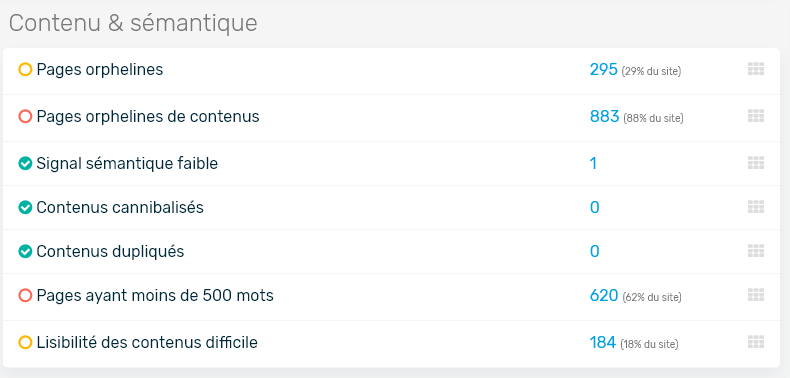
Some explanations:
- Orphan pages: These are pages that are present in the sitemap.xml file but no internal link points to them.
- Orphan content pages: These are pages with no links from any content on the site.
- Weak semantic signal: These are pages whose analysis (via machine learning) could not determine the exact theme of the content. A rewriting job may be necessary.
- Cannibalized content: Cannibalized content can penalize each other. We talk about it in the article https://www.seoquantum.com/billet/cannibalisation-seo
- Difficult content readability: These are difficult to read contents that should benefit from a rewriting job (simplification of sentences).
Internal Linking Audit
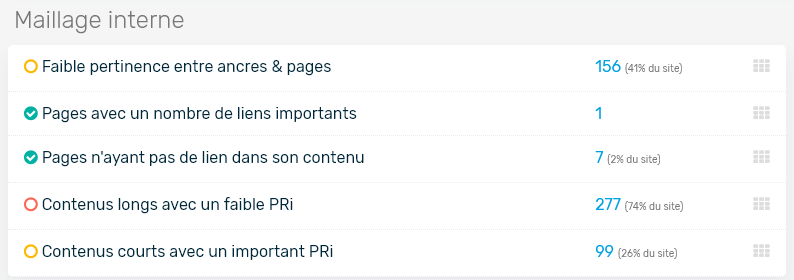
Semantics also come into play in internal linking, as evidenced by the "Low relevance between anchors & pages" indicator. Some explanations:
- Low relevance between anchors and pages: These are pages with internal anchors different from the content of the page. Your content is about "duvet covers" but most of your internal anchors are on the term "bed linen size"... Hmm, it lacks coherence.
- Pages with a significant number of links: These are pages with a large number of internal links. Search engines, like the user, appreciate simple pages.
- Long content with low PRi (Internal PageRank): These are pages with long content and strong semantics BUT a low Internal PageRank (=notoriety).
- Short content with high PRi: you've got it, these are therefore short pages (usually less than 100 words) with high internal notoriety.
Site Mindmap via Semantic Audit
All the collected information allows to constitute a mindmap representing the links between the contents as well as the flow of the Internal PageRank (PRi).
Each bubble represents a page, the lines are the links between each page and the size of each bubble corresponds to its PRi (according to the reasonable surfer model).
As you can see, some pages (bottom right) are not linked to each other.
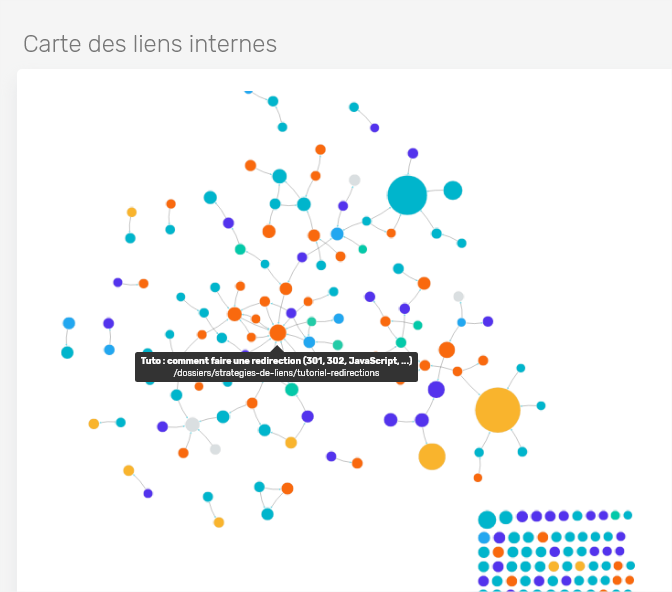
The tool is constantly evolving, your feedback is valuable, don't hesitate to give me your feedback in the comments.
Need to go further?
If you need to delve deeper into the topic, the editorial team recommends the following 5 contents:
